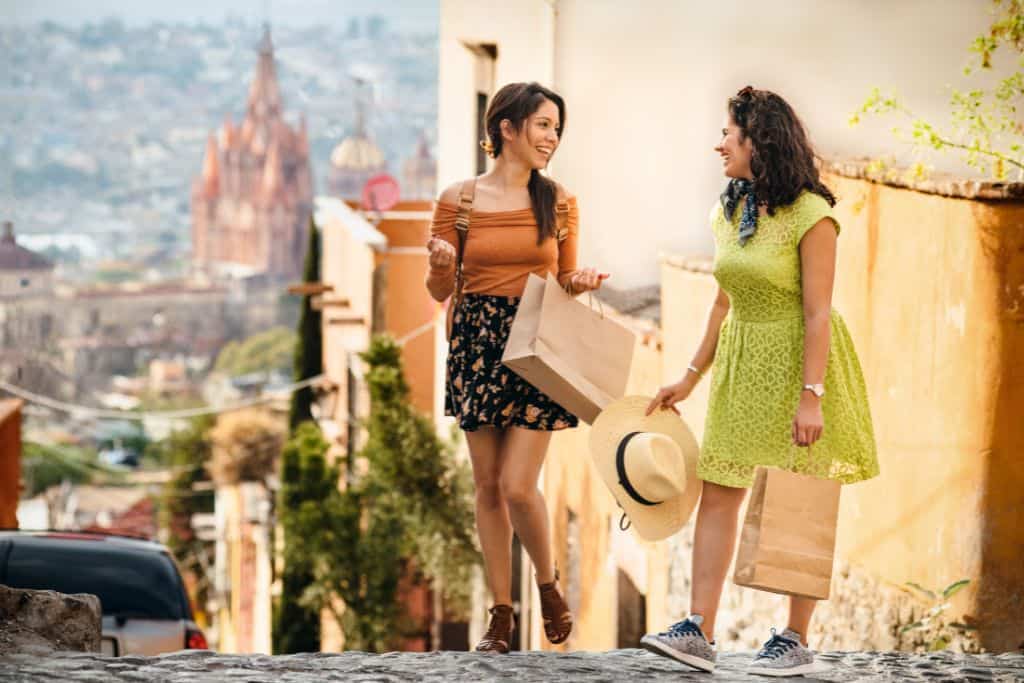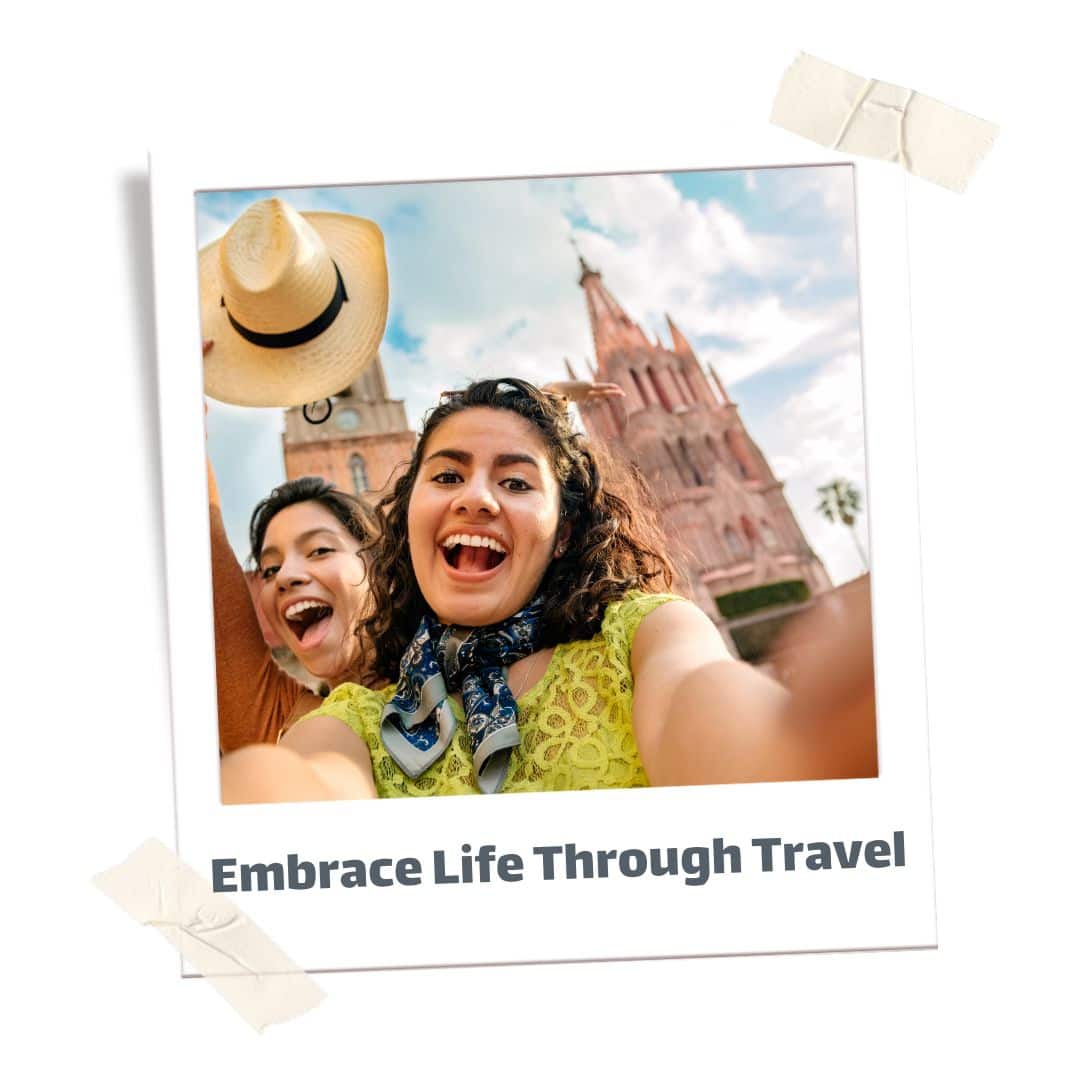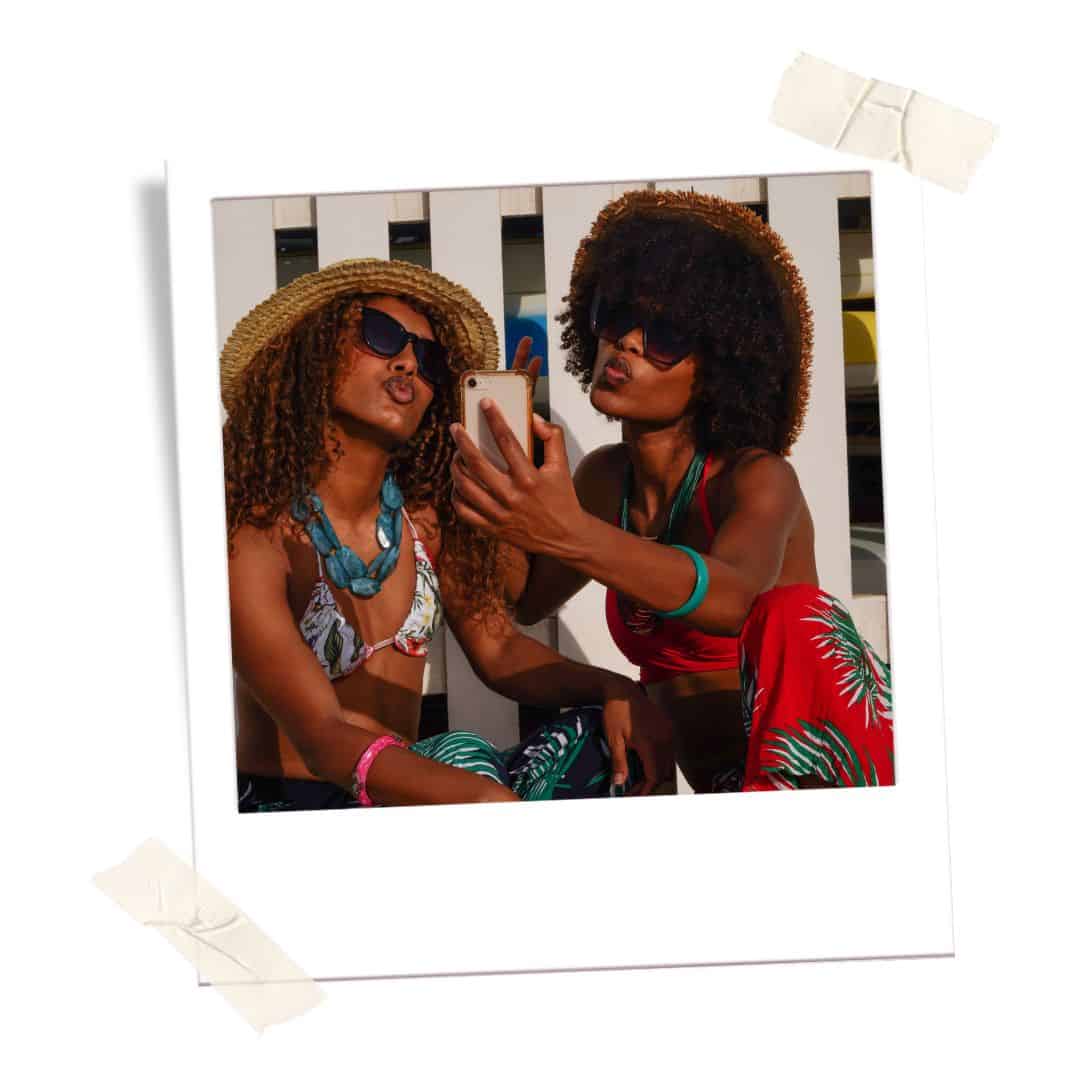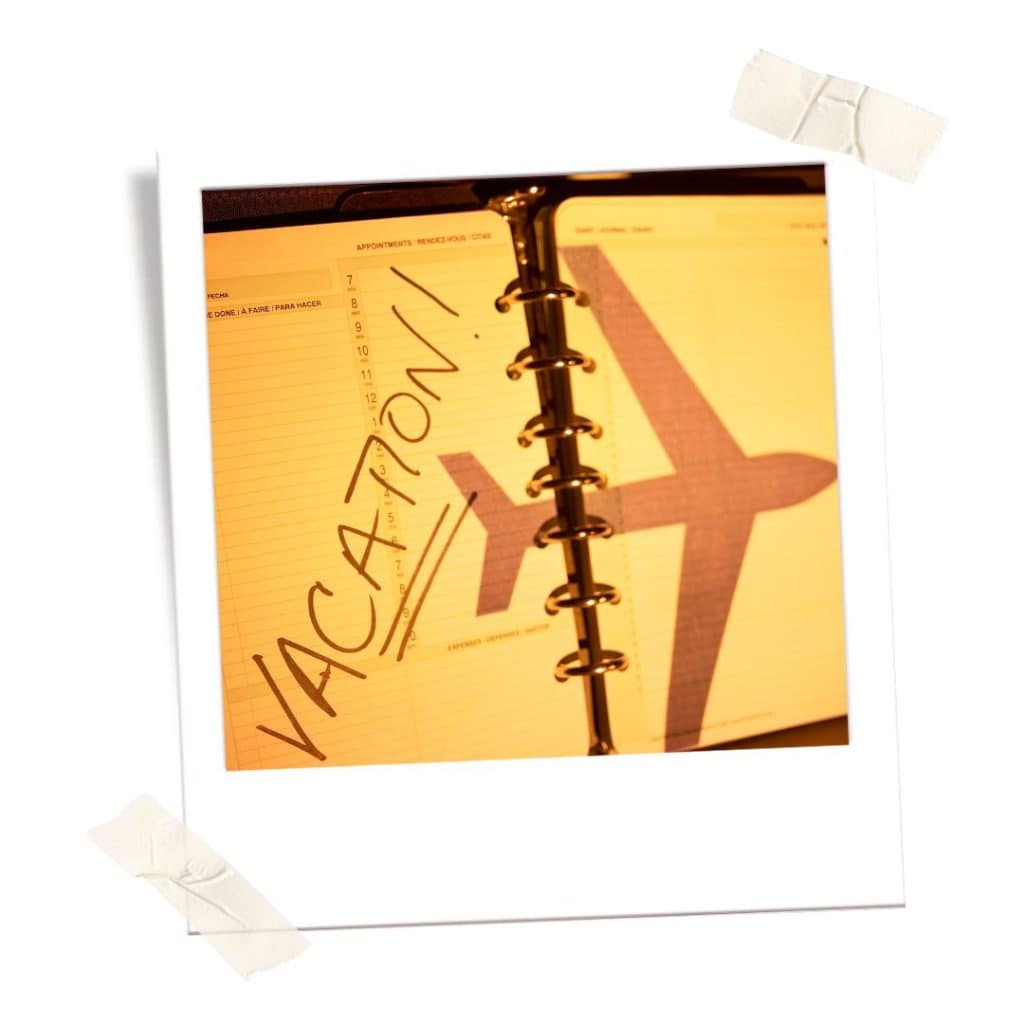Is Mexico Safe For Solo Female Travelers?

Mexico is a country that invites, inspires, and welcomes – but is it safe for solo female travelers?
The short answer: Yes AND it depends on who we are, where we go, and how we are perceived.
As a solo female traveler, you can have an enriching, unforgettable experience in Mexico, just like thousands of other women who visit each year.
However, safety isn’t about painting a country with broad strokes – it’s about understanding its nuances.
I’ve traveled extensively across Mexico, visiting over 35 cities and 12 states, mostly alone. In all that time, I have never had personal safety issues.
Instead, I’ve experienced kindness, generosity, and a deep sense of community at every turn. From market vendors in Oaxaca sharing stories behind their crafts to a local queer cafe owner in Querétaro inviting me back to stay with her.
That said, just like in Canada, I take precautions – trusting my gut, choosing safe accommodations, using reputable transportation, and staying mindful of my surroundings.
Let’s get into some real conversations about safety and practical advice for traveling confidently as a solo woman in Mexico.
Quick Travel Resources
🛫 WISE – Multi-Currency Debit Card
🛫 REMITLY – International Money Transfer
Solo Female Travel in Mexico: Safe Destinations

Safety in Mexico varies by location, awareness, and travel style – just like anywhere in the world.
Some cities consistently stand out as safe, welcoming, and ideal for solo female travelers, including:
✔ Oaxaca City – A hub of Indigenous culture, art, and world-class food.
✔ Mérida – One of Mexico’s safest cities, with a strong sense of community.
✔ San Miguel de Allende – A vibrant, artistic town with a small-town feel.
✔ Puebla – A colonial gem known for its rich history and incredible cuisine.
Is Mexico Safe for Solo Female Travelers? The Bigger Conversation
When we talk about women’s safety while traveling, it’s easy to focus on how we, as guests, can protect ourselves.
But we also need to ask a deeper question: Is Mexico safe for which women and people?
While many solo female travelers, myself included, have safe and positive experiences in Mexico, the reality is that safety is not experienced equally – not by all women, and certainly not by all people.
It is important to recognize that local women and LGBTQ+ people, women of colour, and 2SLGBTQ+ travelers often navigate different daily risks and challenges.
The Reality for Local Women & LGBTQ+ People in Mexico

¿Dónde están? +15,000 personas desaparecidas en Jalisco | Where are they? +15,000 people missing in Jalisco
More than 15,000 people are missing in Jalisco, leaving families searching for answers. This mural is a stark reminder—more than art, it’s a plea for justice. Responsible travel means recognizing both the beauty and the hardships. Learn more from the International Commission on Missing Persons.
Photo © Daena Crosby
For many Mexican women, LGBTQ+ individuals, and men, safety is not just about taking precautions – it’s a daily fight for survival.
Femicides (the murder of women based on gender) and disappearances remain alarmingly high, with at least 10 women murdered every day in Mexico, and thousands more going missing each year.
Many of these cases go unresolved, leaving families and communities searching for justice.
Similarly, LGBTQ+ individuals, especially trans women, face disproportionate levels of violence and discrimination.
Mexico has one of the highest rates of transphobic violence in the world, yet it also has astrong, resilient trans activist movement fighting for rights and visibility.
While Mexico has made significant legal progress, including same-sex marriage nationwide, the reality on the ground can be different.
Hate crimes, police harassment, and social stigma still create dangerous situations for queer and trans Mexicans, particularly in rural areas and conservative regions.
While tourists are rarely the direct targets of this violence, it’s important to recognize that local women and LGBTQ+ people often do not experience the same level of safety that visitors do.
As travelers, we must be careful not to romanticize a destination while ignoring the struggles of those who live there.
Loving Mexico also means listening to the voices of its marginalized communities, supporting their movements, and acknowledging the systemic issues that make safety an unequal reality.
How We Can Show Solidarity
✔ Support women- and LGBTQ+-owned businesses
Whether it’s a female-led restaurant, a queer-friendly café, or an artisan cooperative, spending money with these businesses helps build economic independence and visibility.
✔ Learn about Mexico’s Indigenous Gender Identities
Mexico’s gender diversity is deeply rooted in Indigenous cultures – long before colonization imposed binary gender norms.
For example, in Oaxaca’s Zapotec communities, Muxes (pronounced “MOO-shays”) are recognized as a third gender – people assigned male at birth who live as women or embrace a non-binary identity.
Muxes hold respected roles in their communities, often as artisans, healers, or caretakers, and their existence challenges the idea that trans and non-binary identities are “modern” concepts.
✔ Support feminist and LGBTQ+ movements in Mexico
Groups like Fondo Semillas, Mariposas Mexico, and Manos Amigues are working to fight gender-based violence and advocate for LGBTQ+ rights – follow their work, donate, and amplify their voices.
✔ Acknowledge privilege
If foreign travelers feel safer in places where local women, LGBTQ+ individuals, or people of colour do not, we need to ask why that is and actively work to challenge the structures that create those disparities.
✔ Respect local safety concerns
While some destinations may feel safe for tourists, that doesn’t mean local activism and justice efforts aren’t needed. Supporting legal protections, social movements, and community-led initiatives helps create a Mexico that is safer for everyone – not just visitors.
Women of Colour & the Unequal Experience of Safety While Traveling
Another critical aspect of solo female travel safety is recognizing that women of colour do not experience travel the same way.
While some travelers may feel welcomed, others encounter racism, discrimination, or increased vulnerability in certain spaces.
✔ Black travelers in Mexico have shared experiences of being stared at, touched without consent, or assumed to be from somewhere other than their actual home country.
Some also face differential treatment from law enforcement or businesses.

✔ Indigenous women, whether Mexican or from other countries, often navigate different layers of discrimination, especially in regions where colourism and classism are prevalent.
✔ Asian and Middle Eastern women travelers may face curiosity or microaggressions that reflect global stereotypes rather than personal interactions.
How We Can Support Each Other:
- Listen to and uplift the experiences of travelers of colour – Travel blogs, social media, and online forums provide insight into how different women experience travel in Mexico.
- Acknowledge our own biases – Those of us who don’t face racialized discrimination should ask ourselves: How can I make travel spaces more inclusive and welcoming for others?
- Call out discrimination when we see it (if we feel safe to do so) – If a business treats someone unfairly due to their race or background, we can choose to speak up or take our business elsewhere.
The Reality for 2SLGBTQ+ Travelers in Mexico

Mexico has made significant progress in LGBTQ+ rights – same-sex marriage is now legal nationwide, and cities like Mexico City, Guadalajara, and Puerto Vallarta have thriving queer communities.
However, the reality for 2SLGBTQ+ people in Mexico is complex.
✔ Legally protected but socially varied
While Mexico has legal protections for LGBTQ+ individuals, acceptance can vary depending on region. Larger cities and tourist destinations tend to be more inclusive, but rural areas and some conservative communities may be less welcoming.
✔ Public affection may attract attention
In Mexico’s most LGBTQ+-friendly cities, such as Puerto Vallarta, Mexico City, and Mérida, queer couples can express affection freely. However, in smaller towns or religiously conservative areas, discretion is often advised to avoid unwanted attention.
✔ Violence against LGBTQ+ people exists – While Mexico has many vibrant and safe queer spaces, hate crimes and discrimination still happen, particularly against trans women. As a traveler, you may not experience the same risks as local LGBTQ+ individuals, but being aware of the realities queer Mexicans face is important.
How 2SLGBTQ+ Travelers Can Stay Safe & Find Community:
- Stick to LGBTQ+-friendly destinations – Mexico City’s Zona Rosa, Puerto Vallarta’s Romantic Zone, and Playa del Carmen have strong queer communities and safe nightlife scenes.
- Research LGBTQ+-owned businesses – Supporting queer-owned cafés, bars, and hotels helps strengthen safe spaces for locals and visitors alike.
- Use dating apps with caution – Apps are popular in Mexico but exercise the same precautions you would at home when meeting someone new.
- Know your rights – Mexico has anti-discrimination laws, but enforcement varies. If you experience discrimination, you can report it to CONAPRED (Mexico’s National Council to Prevent Discrimination).
Resources for LGBTQ+ Travelers in Mexico:
✔ LGBTQ+ Facebook groups & travel forums – Great places to ask for local recommendations.
✔ Safe travel guides – Websites like Equaldex track LGBTQ+ rights by country and region.
Traveling with Awareness & Solidarity
It is entirely possible to have an incredible, safe, and empowering experience as a solo female traveler in Mexico, but safety is not universal – it depends on who we are, where we go, and how society perceives us.
✔ Women’s safety isn’t just about travel tips – it’s about systemic change.
✔ Local women and LGBTQ+, women of colour, and 2SLGBTQ+ individuals face unique risks that we must acknowledge.
✔ True solidarity means traveling with awareness, listening to local voices, and actively working toward a world where all women – tourists and locals alike – can exist and thrive without fear.
This is not about discouraging travel – it’s about traveling with eyes open, with awareness, and with a commitment to justice.
Because safety should not be a privilege – it should be a right for every woman, everywhere.
10 Safety Tips for Solo Female Travelers in Mexico

When we talk about women’s safety while traveling, it can sometimes feel like we’re placing the entire responsibility on women to protect themselves – and that can sound a lot like victim-blaming (because it’s rooted in that!).
The truth is: Women shouldn’t have to navigate the world with extra caution just to feel safe.
The responsibility for safety shouldn’t rest solely on our shoulders.
Men also have a role to play in making the world safer for women. This isn’t just about women adjusting our behaviour – it’s about changing systems, challenging harmful attitudes, and fostering environments where safety isn’t a privilege, but a given.
Whether that’s by holding each other accountable, listening to women’s experiences, or actively working to make public spaces safer, this is a shared responsibility.
Women should be able to explore the world without fear, and men should be part of the solution, not just bystanders.
Until that change happens, we empower ourselves through awareness, but we also keep demanding a world where we don’t have to think about safety first.
These safety tips will help you feel confident, prepared, and empowered while exploring Mexico on your own!
1. Trust Your Intuition – It’s Your Best Guide

Your gut feeling is your strongest tool when traveling alone. If something feels off – whether it’s a person, a situation, or a place – listen to it and remove yourself.
Confidence and awareness can go a long way in avoiding uncomfortable situations.
✔ Walk with purpose and look like you know where you’re going, even if you don’t.
✔ If someone is making you uncomfortable, change directions, step into a store, or seek out other travelers or families.
✔ Trust your instincts when accepting invites from new acquaintances.
2. Trust the Culture, Not Just the Headlines
The biggest mistake travelers make is assuming the entire country is dangerous based on media reports.
Mexico is not just crime statistics – it’s a place of warmth, resilience, and deep community values. The reality? Millions of people live, work, and travel here safely every day.
✔ Engage with locals – Mexican culture is deeply social and community-oriented.
✔ Ask women for advice – If you’re unsure about an area, ask a local woman for guidance.
3. Choose Accommodations Wisely
Where you stay matters – opt for safe, well-reviewed accommodations in central locations.
✔ Look for female-friendly hostels (or rooms in hostels), hotels, or Airbnbs with strong security measures.
✔ Stay in well-lit, busy areas – avoid staying in isolated neighbourhoods, especially if you’ll be walking alone at night.
✔ Check reviews from other solo female travelers on platforms like Hostelworld, Booking.com, or Airbnb.
Pro Travel Tip: Message your accommodation before arrival to confirm details about check-in security and transportation recommendations.
4. Be Mindful About Sharing Your Plans
While it’s great to make friends while traveling, be intentional about what you share – especially with strangers.
✔ Avoid discussing your exact location, where you’re staying, or your travel plans with people you just met.
✔ If someone asks, keep answers vague – “I’m meeting up with friends later” works well.
✔ When posting on social media, wait until you’ve left a location before tagging yourself.

5. Use Trusted Transportation Options
Getting around Mexico safely means choosing the right transportation.
✔ Uber and Didi (where available) are safer than hailing taxis from the street.
✔ For long distances, choose reputable bus companies like ADO, ETN, or Primera Plus.
✔ If taking a taxi, use official taxi stands (sitios) or ask your accommodation to call one for you.
Pro Travel Tip: When using a rideshare app, double-check the driver’s name, car model, and license plate before getting in.
6. Walk Confidently
Confidence and cultural awareness can make a big difference in how you’re perceived.
✔ Avoid looking lost—if you need directions, step into a café or shop to check your map rather than standing on the street with your phone out.
✔ Keep valuables out of sight – carry a crossbody bag and be aware of pickpockets in crowded areas.
Pro Travel Tip: If someone is staring or making you uncomfortable, make eye contact confidently and move away with purpose – assertiveness can deter unwanted attention.
7. Have a Safety Check-In System
Keep yourself safe by setting up a check-in system. Let someone know your plans, especially when moving between cities or exploring new areas.
✔ Share your itinerary with a friend or family member and check in regularly.
✔ Use WhatsApp to stay connected – most locals, businesses, and drivers use it for communication.
✔ Set up Find My Friends (Apple) or Google Location Sharing with a trusted contact.
Pro Travel Tip: If traveling between cities, send your bus or flight details to someone before departure.
8. Always Watch Your Drink
Mexico has an incredible nightlife scene but stay in control of your surroundings.
✔ Never leave your drink unattended.
✔ Order bottled beverages opened in front of you to prevent tampering.
Pro Travel Tip: If you’re alone and feeling uncomfortable at a bar or restaurant, pretend to call someone or ask a bartender for help – they will often step in discreetly.
9. Learn Basic Spanish Phrases for Emergencies
Even if you’re not fluent, knowing key Spanish phrases can be helpful.
✔ “Ayuda, por favor” (Help, please)
✔ “No, gracias” (No, thank you) – firm but polite
✔ “¿Dónde está la estación de policía?” (Where is the police station?)
✔ “¿Puede llamar un taxi seguro para mí?” (Can you call a safe taxi for me?)
Pro Travel Tip: Save the local ambulance and embassy numbers in your phone before arrival. Mexico’s emergency number is 911.

10. Carry Small Essentials for Extra Security
A few small security essentials can go a long way in keeping you safe and prepared for unexpected situations while traveling.
✔ Portable door lock – Useful in hotels and hostels for extra security at night.
✔ Whistle or personal alarm – A small but effective deterrent in emergencies.
✔ Cash stash – Keep a small amount hidden separately from your main wallet in case of loss or theft.
Pro Travel Tip: Carry a fake wallet with a small amount of cash in case of petty theft – it can be handed over while keeping your actual valuables safe.
Embrace Mexico and Stay Alert
Mexico is a country full of warmth, generosity, and incredible experiences, and most solo female travelers have safe and positive experiences here.
✔ Say yes to new experiences – Mexico’s culture is deeply social, and some of your best moments will come from spontaneous connections.
✔ Stay aware – confidence and preparedness will help you travel smoothly.
✔ Enjoy the journey! Mexico is a place to be explored, not feared – go with curiosity, respect, and an open heart.
✨Keep Exploring Mexico Magic✨
👉✨ 7-Day Ultimate Mexico Itinerary: From Mexico City to Oaxaca

